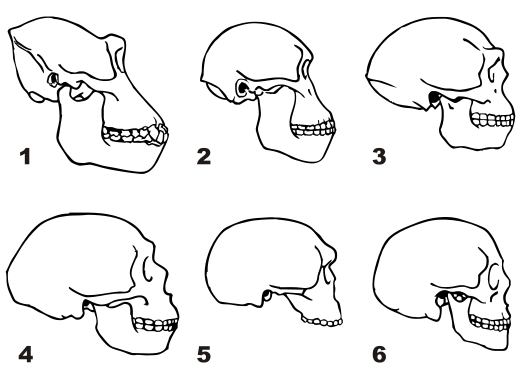
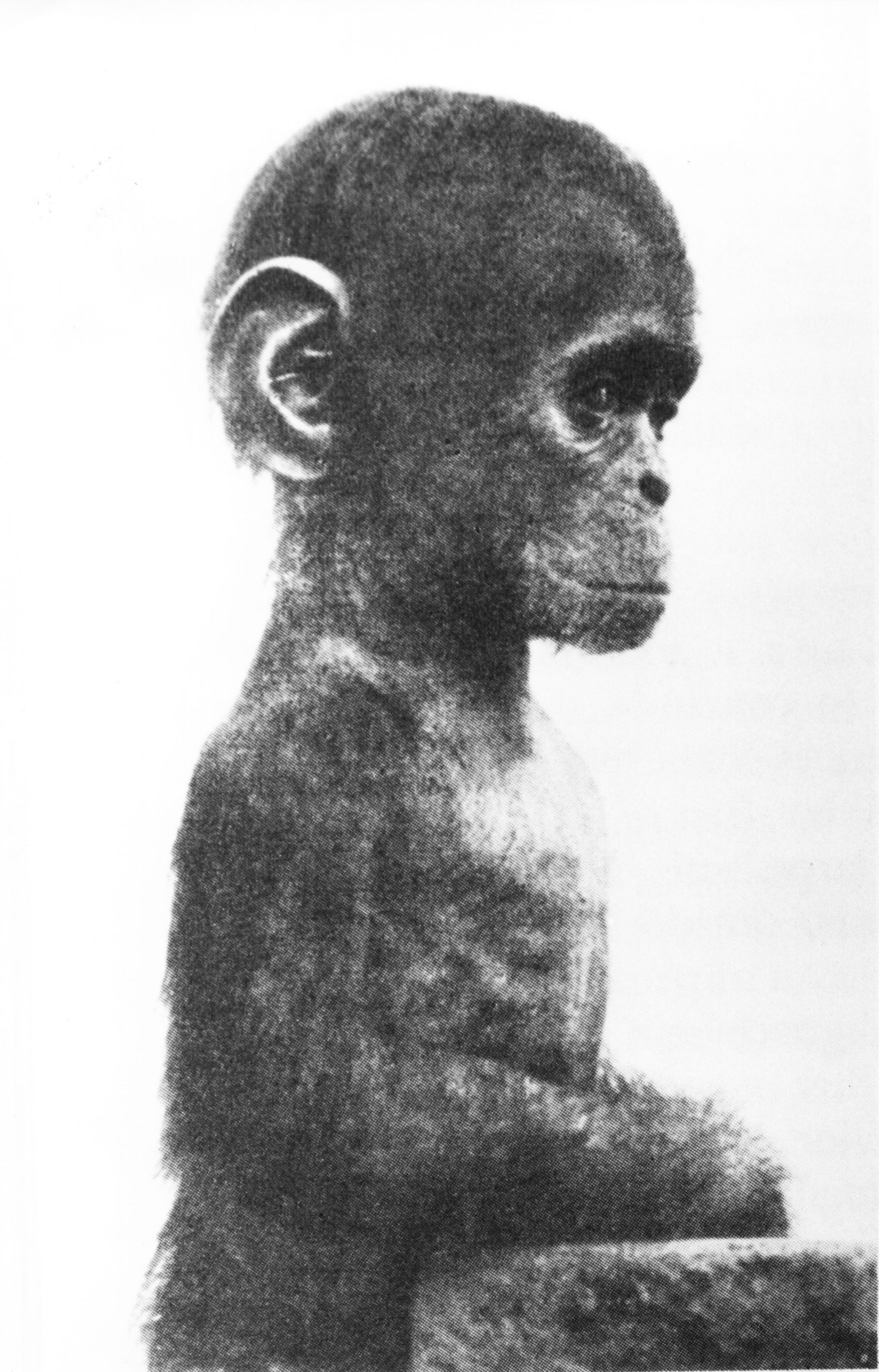 Some of the latest genetic research on neoteny suggests that humans–and the very powerful institutions that govern them–have preferentially selected for the survival of more childlike humans over thousands of years. This is exhibited in the form of a loss of–or a delay in–the expression of important maturity genes found in primates and earlier hominids. This causes–what some have referred to as–“more evolved” humans to have the less threatening appearance of primate infants–just as domestic dogs tend to resemble wolf pups. Not only do domestic dogs resemble wolf pups in appearance, they also resemble them in behavior. While wolves focus on the meat that is in their trainer’s hands, young wolf pups and dogs look up at the eyes of their trainer to try to see what their trainer wants so that he will share his meat with them. Thus, it is no surprise that domestication has increased the time span in which a dog can learn new tricks. So it would seem that neoteny is a desirable thing.
Some of the latest genetic research on neoteny suggests that humans–and the very powerful institutions that govern them–have preferentially selected for the survival of more childlike humans over thousands of years. This is exhibited in the form of a loss of–or a delay in–the expression of important maturity genes found in primates and earlier hominids. This causes–what some have referred to as–“more evolved” humans to have the less threatening appearance of primate infants–just as domestic dogs tend to resemble wolf pups. Not only do domestic dogs resemble wolf pups in appearance, they also resemble them in behavior. While wolves focus on the meat that is in their trainer’s hands, young wolf pups and dogs look up at the eyes of their trainer to try to see what their trainer wants so that he will share his meat with them. Thus, it is no surprise that domestication has increased the time span in which a dog can learn new tricks. So it would seem that neoteny is a desirable thing.
Institutionalized Systems of Selection
As there has been selection for neoteny, or more youthful physical and behavioral traits in canines during their domestication, we can also expect that humans have undergone selection for more childlike behavioral traits. Although some positive aspects might be found in a possibly greater malleability, negative aspects would be that humans have become more “finger to the wind,” more heteronomous, and less autonomous. Increasing human plasticity could have both positive and negative repercussions for human culture. As more is learned about how cognitive and behavioral genes have been influenced, it will be interesting to deconstruct how our more child-like phenotype has influenced and continues to influence Homo sapiens’ evolving spirituality and our various religious practices.
Bootlickers for Justice (if it pleases the powers that be)
How has this childification influenced the percentage of people who enter the higher Piagetian cognitive levels and Kohlberg’s stages of post-conventional morality? It would seem that the more corrupt religious and political institutions would benefit from the continued neoteny or “childification” of humanity, as this might result in a greater conformist to nonconformist ratio among adults. Since the most insightful existential critics of institutions arise from the higher cognitive levels, the demise of the genes that gave people a propensity to attain a higher Piagetian level might be something that institutions would desire and hence we would expect their numbers to be decreasing. On the other hand, it might be possible for the postconventional to escape negative selection if they camouflaged themselves in irony or caved to hypocrisy. Thus, while their (Kohlbergian) conventional and preconventional morality allowed those of a lower Piagetian level to serve corrupt institutions in good faith, those of postconventional morality have a choice between hypocrisy or martyrdom. There are those who have understood universal principles that have not capitulated to corrupt institutions: they have been crushed for centuries–leaving fewer descendants than those who have capitulated. Thus, what courage is left in us to stand for justice? Hypocrisy is in the genes of we, the most clever psychophants, who mistakenly call ourselves the most sapien hominids.
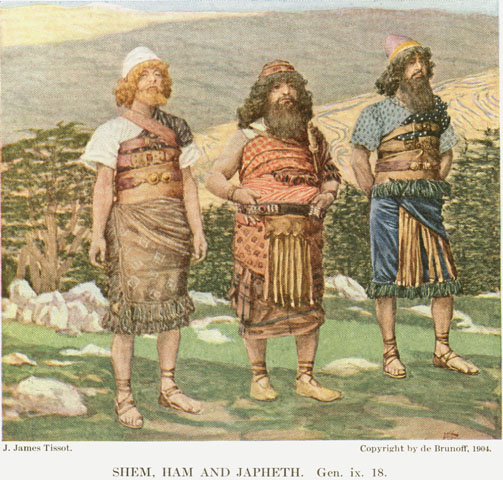
Homo hypocrita, Homo intolerantissima, Homo sycophanta
The way we interpret any text might be influenced by the class to which we belong and the particular natural domestication that has occurred as a result of belonging to a certain class culture for centuries. Noah’s three sons illustrate the tripartite human self: our nature, spirit, and intellect: Different cultures have allowed each of these three parts to rule them and under the paradigms of each culture, different types of human domestication have occurred. Thus, it seems unlikely that merely by passing down the revered writings of sages past we can actualize new sages and champions for justice in each type, unless we somehow unite the best innate elements cultivated by selection within all three cultural niches while removing the worst. Would the original sages even recognize their thoughts in our summaries of their works? This is because our juvenilization has and will inevitably transfigure our interpretation of those texts.
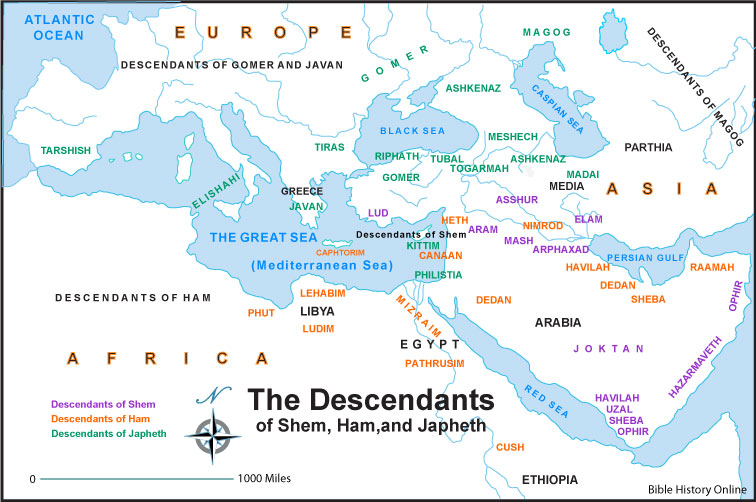
Either/Or
On the one hand, if there is selection against mature cognitive levels and for neoteny in some cultures, their people’s continued juvenilization might, for example, cause their conception of G-d to take on ever more superhero like characteristics–a movement toward pagan Japhethic religions. Alternatively, even if there is selection in some cultures for genes enabling the acquisition of higher Piagetian levels, assuming a priori a positive selection for psychophancy rather than martyrdom, then it is doubtful whether those people’s inherited corrupt spirit would allow them to actually perform the just acts that their monotheism would dictate, as Paul writes.
“I do not understand my own actions. For I do not do what I want, but I do the very thing I hate. . . . I can will what is right, but I cannot do it. For I do not do the good I want, but the evil I do not want is what I do.” (Romans 7: 15; 19, Revised Standard Version).
Considering that each class has its own fitness games and certain traits are adaptive in each, we would expect crucial elements of the three core human virtues: Courage, Honesty, Justice to be present in each class, but not the fully actualized virtues themselves. This is because strength, transparency, and cleverness are what is actually selected for among the archetypal subspecies descended from Noah: Ham, Japheth, and Shem. While Ham’s vigor is an important constituent of courage, when used for selfish ends or untempered by reason, we don’t call it a virtue. While the conditionability found among the descendants of Japheth is an important element for creating their honesty, their plasticity has led them over the centuries to adapt all sorts of strange idiosyncratic prideful practices. While cleverness exhibited by Shem is an essential factor in understanding justice, cleverness alone does not a just person make.
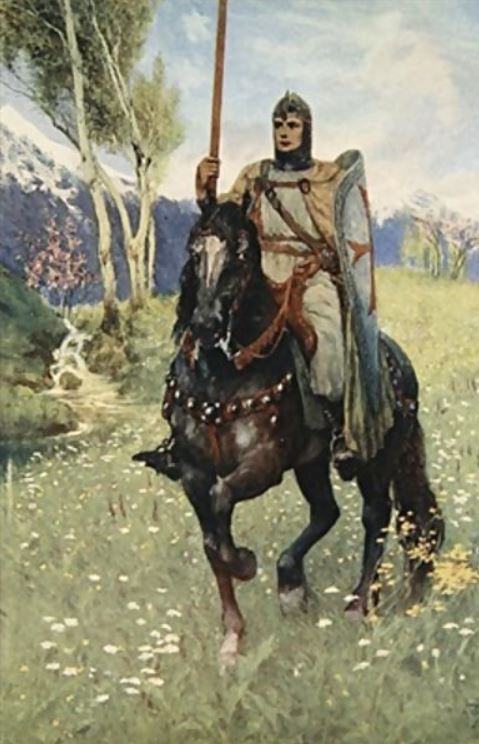
So, when individuals have arisen in civilization exhibiting the virtuous applications of: vigor, conditionability, and cleverness they have generally produced less offspring than their competition exhibiting the vicious applications of these. Those exhibiting the actual virtues: courage, honesty, and justice, have been the sung and unsung martyrs of the ages.
We all benefit from the more peaceful and more just society that has arisen from the sacrifices of heroes, saints, and prophets. Though these servants of humanity have been a unique hybrid of the best elements of Ham, Japheth, and Shem, within their own generations these heroes, saints, and prophets have always been existentially abused. Is their altruism a fossil fuel we will some day run out of? Ancient texts indicate we have gone out of our way for well over three thousands years to kill them. Why do we kill them? Well, they are different and, frequently, they have the audacity to ask with righteous indignation those in power to live by principles rather than the self-serving cleverness to flatter those in power and allow might to set the standards for what is right: Furthermore, they have the arrogance to ask those not in power to think about ultimate rather than proximate ends, making them easy for the servants of the powerful to turn the mob against. Just as chickens peck at the hen that is different, it seems to be in the nature of humans to criticize, demonize, burn, jail, or crucify those people who “march to the beat of a different drummer” perhaps because playing this dominance hierarchy game is what egotistic humans do best. Each of these actions results in the lowering of the inclusive fitness of the virtuous hybrid who is courageous, honest, and just. In turn, the persecution of those with such virtues results in the greater and greater passing down of genes that merely code for the lusty, the psychophantic, and the clever.
“Oh Jerusalem, Jerusalem, you who kill the prophets and stone those sent to you, how often I have longed to gather your children together, as a hen gathers her chicks under her wings, and you were not willing.” Matthew 23:37
In the above quote, Jesus was merely restating the observations of Daniel and Isaiah on the problem of neoteny. Both asked how we can set up a system to preserve and protect those people who exhibit a hybridization of the three variables that produce courage, honesty, and justice. They wondered how to warn these gems of humanity against throwing their pearls before swine who have little understanding or, alternatively, how to redirect the swine so as to keep them from martyring the just. What plan could save Daniel’s virtuous friends: Shadrach, Mischach, and Abednego from the figurative raging fire? What scheme would protect Daniel himself from the appetites and fury of the figurative lions? What spell could save the seed and winnow the chaff, asked Isaiah? The plan was spelled out by both Daniel and Isaiah in numerous ways, but veiled in allegory so that seeing, the swine “might not see, and hearing, they may not hear…” Isa 6:9 The veil, or seal, was a double seal, so that only those possessing a combination of the excellences might understand. The lusty would not be able to focus on scripture; the merely clever would become bored with the scriptures; while the dogmatic thinkers would pick out what verses agreed with their wishful thoughts and chant them like pagans, but not be clever enough to critically assess the material and read between the lines.
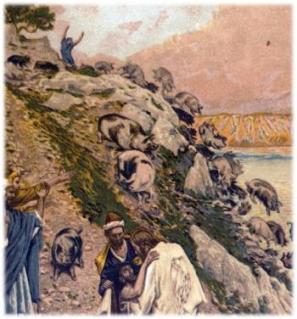
How well Daniel’s plan has worked for the last 2500 years in controlling the less desirable aspects of neoteny is best understood by whole genome comparison of what alleles have preferentially survived through the years within the peoples governed by the paradigms he envisioned in his dream, and its implementation by Isaiah and Jesus.


